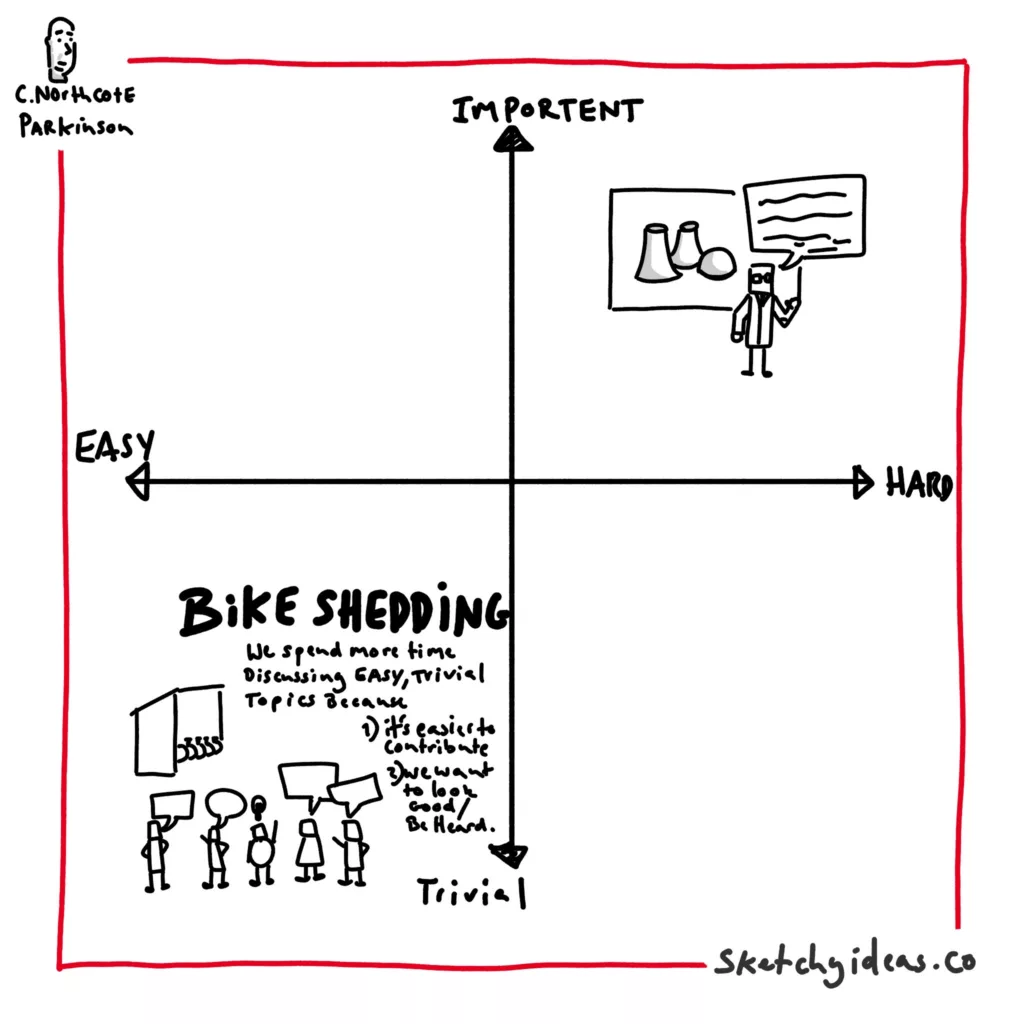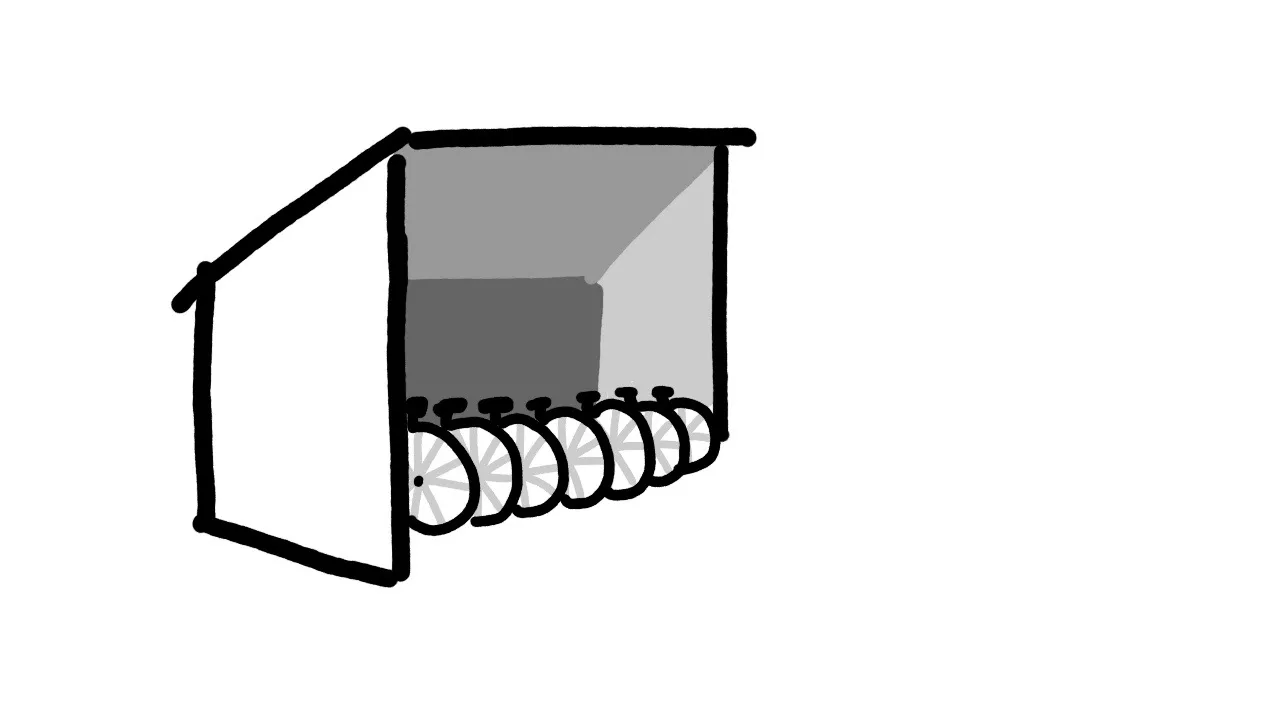Ever been stuck in a meeting where everyone is obsessed over a topic that really doesn’t matter?
Congratulations, you were in a “bike shedding” discussion. Although it may have been a pain, after reading this article you’ll be able to avoid getting in caught in similar discussions again so you can focus your time and energy on more important matters.
Let’s dive in.
What is Bike Shedding?
Bike shedding refers to a strange situation where a group will spend most of their time and energy discussing minor or irrelevant issues instead of more significant and complex ones. It comes from C. Northcote Parkinson of Parkinson’s law fame. He noted that a discussion about the design of a bike shed would be longer than one of a nuclear plant because everyone and anyone can chip in on a bike shed design.

The fact that the topic is insignificant encourages more people to speak so they look like they have something to say.
Why Bike Shedding Matters
Understanding bike shedding can help us use our time more effectively on bigger issues.
Knowing the temptation to get caught up in unimportant issues instead of the most valuable topics allows us to avoid this trap. Instead of wasting everyone’s time, we can focus on more important issues, giving them the resource they need. Best of all, we can start implementing small projects sooner them instead of discussing them.
Here’s some tips to apply.
Practical tips to overcome Bike Shedding:
Prioritize the Significant:
In 90% of cases, awareness of what actually matters is enough.
When we state what we need to prioritise and what doesn’t matter, it’s less tempting to bike shed. And when we notice that bike shedding is occurring, we have a reason to move on.
Have the right people in the room:
For critical matters, get the experts in the room.
This will make sure you get the right advice you need and can avoid sidetracks. The experts can help point to what matters and encourage more useful contributions.
The reverse is also true: avoid inviting non-stakeholders into matters where you don’t need their input.
Set clear meeting objectives:
It’s easier to stick to the topic, when you know exactly what you are and aren’t discussing.
Establish clear objectives and desired outcomes for meetings and discussions. By keeping the focus on the bigger picture and aligning discussions with strategic goals, you can avoid falling into the trap of bike shedding.
Time Management Techniques:
Set limits and deadlines to prevent your bike shed getting out of hands.
Techniques like
- time blocking
- setting deadlines,
- and minimizing distractions
can help maintain focus on the most important tasks and avoid getting derailed by less important topics.
Embrace Constructive Discussions:
Not all discussions are bike shedding.
Constructive discussions and debates are essential for decision-making and fostering collaboration. Some discussions need many people and require everyone to share their piece. However, it is crucial to maintain a balance by ensuring that the time and effort spent on discussions are proportionate to the significance of the matter at hand.
Conclusion
Bike shedding can hinder productivity and impede progress on meaningful tasks and decisions.
But by understanding the mental model of bike shedding and its implications, we can overcome this tendency and allocate our resources wisely.

